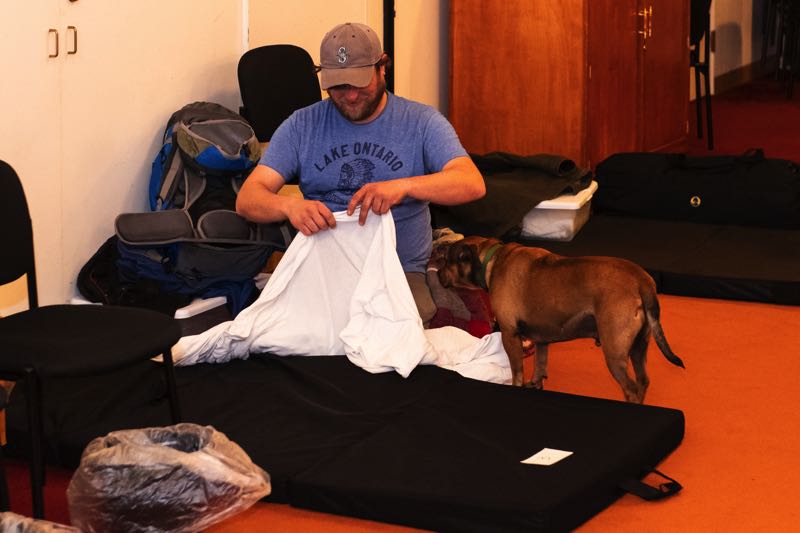The Portland Tribune is a KOIN 6 media partner.
PORTLAND, Ore. (Portland Tribune) — As overnight temperatures rapidly cool down, Beaverton city leaders are renewing conversations of building a permanent homeless shelter.
The city has provided a winter shelter over the last five years, but a permanent structure would be an entirely new concept for the Portland suburb.
Beaverton Mayor Lacey Beaty says the conversation has been ongoing for years, but the pandemic and recent extreme weather is really what pushed the issue to the surface.
“We know it’s a big leap from seasonal severe weather shelters,” she said. “But it’s an important step to take.”
The region is also experiencing a historic influx of public money to help address homelessness.
In May 2020, voters in the Metro area approved a tax estimated to raise $2.5 billion for homeless services over the next decade. That came less than two years after Metro voters approved a $652.8 million bond to build more affordable housing across the region.
With council support and in collaboration with state Sen. Kate Lieber and Reps. Wlnsvey Campos and Sheri Schouten, Beaverton secured $2.3 million of American Rescue Act Funding with the purpose of establishing a permanent shelter.
Beaty said the city also lined up an additional $350,000 with the help of state Rep. Maxine Dexter to have a clinic in the shelter, in order to provide what advocates called “wraparound” services — in this case, providing affordable healthcare for guests on-site.
“We’re taking the next steps to approve a site and fill any funding gaps,” Beaty said. “And now that we have a city manager on board, we’re really able to kind of make this process go a little bit quicker.”
Beaverton has undergone a change in its form of government, since city voters approved a new charter in May 2020. After several months with an acting manager, Jen Haruyama started work in August as Beaverton’s first permanent city manager, effectively completing a process in which direct oversight of City Hall has shifted from the elected mayor to the appointed administrator.
Even still, the City Council is in charge of setting policy for Beaverton — including the city’s approach to homelessness.
In September, a panel of housing experts spoke to Beaverton city councilors about shelter services already provided in Washington County, and how Beaverton can help fill in the gaps.
Eboni Brown, executive director of Greater Good Northwest, says there is a sentiment among some neighbors that homeless shelters and services negatively impact the livability of neighborhoods. She recommended that councilors invest in partnerships that help keep the areas clean and in order to maintain support from the community.
Brown also advised the city to form a navigation team to help community members access the services that are available.
“If you’re going to have a shelter, the proper thing to do is have a community outreach in place,” she said.
As the stars line up for the new shelter, city planners are in the process of updating Beaverton’s code so it’s ready by the time a location is secured.
In July, the City Council held a joint work session with Beaverton’s planning commission to review code changes that would allow a shelter to be built.
“One of the things about our development code is if it doesn’t mention a use, it means it’s not allowed. So it’s silent on shelters year-round,” long-range planning manager Brian Martin said.
Beaty also recognizes that livability is an issue that a lot of people in the community are talking about, but she also points that right now, there simply isn’t anywhere for folks on the streets to go in Beaverton.
Beaty also said the homeless crisis in Beaverton looks a little different than it does in Portland. She points to Beaverton’s “safe haven” parking program — which allows people to sleep in their cars overnight without penalty — as an example of what the homeless demographics look like in her community.
“We know the average person accessing that program is a 70-year-old woman,” she said.
Location for the proposed shelter will be key as Beaverton officials continue to scope out possible sites. Not only does the site need to be in proximity to public transportation, the site will also need to have space to provide wraparound services as well.
“It has to be a location that is usable for its purpose,” Beaty said. “We want to bring in people that have been sheltered before to talk to us about their experience and challenges of getting into shelters.”
City leaders will revisit the topic of a shelter and explore potential sites in November.

